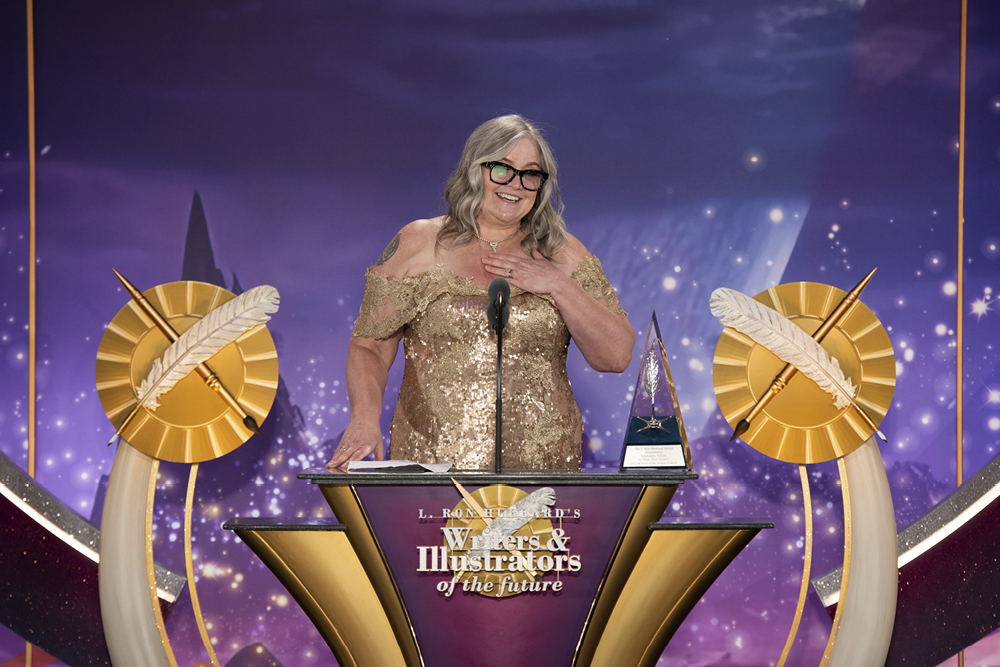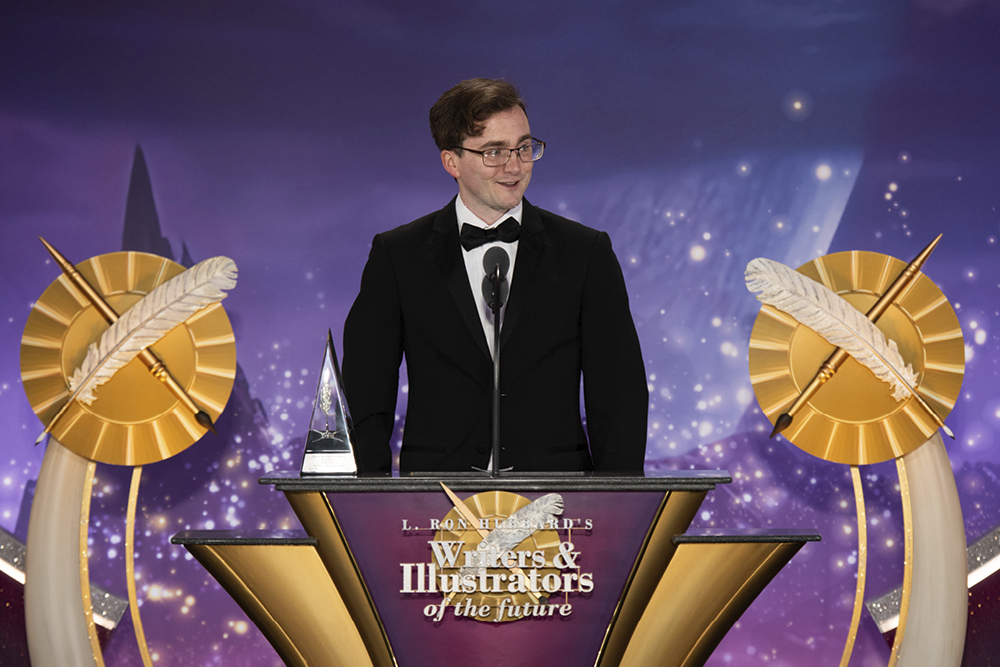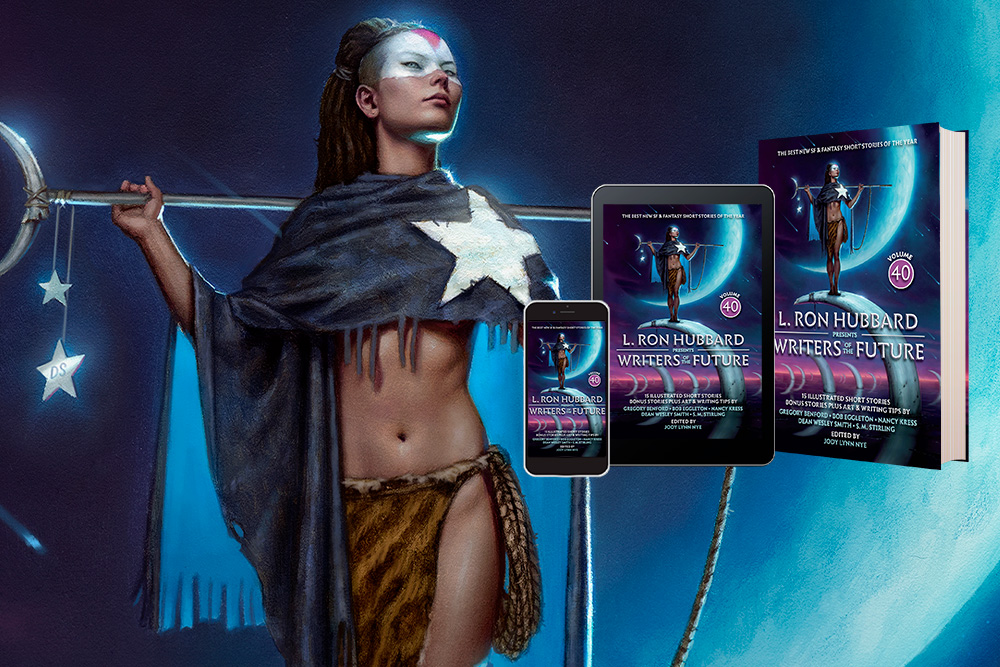Don’t Let Rejections Stop You
I’ve always wanted to write. Me being me, that meant I read lots of books about writing over the decades, tried a writer’s group while doing my pre-veterinary studies (a splendid group, that has produced at least one WOTF winner, just one I wasn’t ready for at the time), and occasionally got some words down.
The fantasy books and, later, online courses I’d found to study talked about building long character studies, creating a whole world with all its details, and so on, before I would be able to start writing the actual story.
For me, this was crippling. I didn’t have the time to go into rabbit holes that turned into underground labyrinths, which, knowing myself, is what I’d do.
And thus, I thought I didn’t have the time to write.
So I didn’t. Not really.
But I kept studying. Just in case.
My epiphany:
I found Dean Wesley Smith’s Writing into the Dark sometime in 2018 and it was an epiphany.
I could just write.
I could sit down, think of a character, think of a situation, and simply write, and discover the world as I did so.
(As it turned out, I’ve since learned, in workshops, if I have to explore a certain facet of the world, I just start writing about my character, and I explore those facets through the character. For me, it’s so much more fun—and so much easier—than just writing dry factual lists.)
At that point, I threw myself into a variety of more focused craft classes* (both online and in person)—literally hundreds!—and writing.
And I got better.
I can’t remember the first time I heard about Writers of the Future.
I did start sending in stories in 2019; the first was rejected, then I got a handful of Honorable Mentions (including an HM for a story that had sold to a market that unfortunately was closed down due to COVID—shows you that editorial taste is a huge component!), a couple more rejections, a Silver Honorable Mention, then I got the call from Joni.
For me, Writers of the Future was a market—one with some great benefits (the workshop! meeting authors whose work I’ve loved since, well, forever! and finding a cohort of absolutely incredible writers!). HMs and the SHM were nice rejections, but still rejections.
Becoming a better writer:
The Contest wasn’t my only focus: becoming a better writer was.
So, on top of all the classes, I started writing.
A lot of writing.
I completed a challenge to write one story per week for a year (April 2019-2020) through WMG Publishing, Inc. and Dean Wesley Smith. This wasn’t just flash fiction; I went back through the list of stories (I use the free version of Airtable to organize stories and submissions) and ran some numbers. My average word count was around 3,832; the shortest was 2,032, and the longest was 6,775.
As a full-time veterinarian, I write mostly on the weekends, using the first part of the week to get started, let ideas percolate, and so on.
I sold some of those stories (6 cents per word, less than the WOTF cut-off), and bundled most of the remainder into self-published collections.
Story #39 was “Life and Death and Love in the Bayou.” It, too, was picked up by a magazine, but, due to COVID, that magazine never launched. I decided, after reaching out and no word for several years, that it was fine to submit to other markets—and so I sent it to WOTF.
Lessons I’ve learned along the way:
- Don’t make a single story too precious. Write it, and submit it. Go on to the next story.
- You can’t control editorial taste. All you can do is write the best story you can at the time.
- Always keep learning, and practicing what you’re learning.
- Always keep reading—both for pleasure and for study.
- Don’t take rejections personally. Yeah, rejection sucks, but it’s part of being a writer.
On rejections:
I’ve gathered a LOT of rejections. Rejections are not personal.
(Okay, I can imagine all sorts of situations where they may be personal—like if you were a complete ass to the editor, or in public, or who knows—but if you’re a normal decent human being, that rejection is not personal.)
Maybe your story is empirically bad. Could be.
But maybe the editor just purchased something like yours (this sucks, I’ve had this happen on a sweet romance, which really sucks because there are very few markets for those!). Or you killed a puppy (IN YOUR STORY, not in real life) and the editor can’t abide anything horrible happening to animals.
Or, or, or.
Don’t let rejections stop you.
Just keep writing, and learning.
*A chunk of creative writing time in 2021 and 2022 was devoted to learning how to, and writing, a screenplay, through the Writers Guild Veterans Writing Project (https://www.wgfoundation.org/programs/the-veterans-writing-project). I wrote a pilot based on one of my short stories that now is in the queue to be adapted into a novella or novel. Hah!

Award-winning author Stephannie Tallent is a 1989 West Point graduate. Since then she’s served in the Army as a Military Intelligence officer, gotten a Zoology degree, went to vet school, worked as a small animal veterinarian, and designed and published knitting patterns and books.
She’s now writing everything from fantasy to science fiction to mysteries to romance. She placed first in the 1st quarter of Volume 40 Writers of the Future competition.
She lives in Hermosa Beach, California, with her husband Dave, and English Cocker Spaniels Orry and Rosie.




I think it’s so cool that she created and wrote knitting patterns! Wowsa!